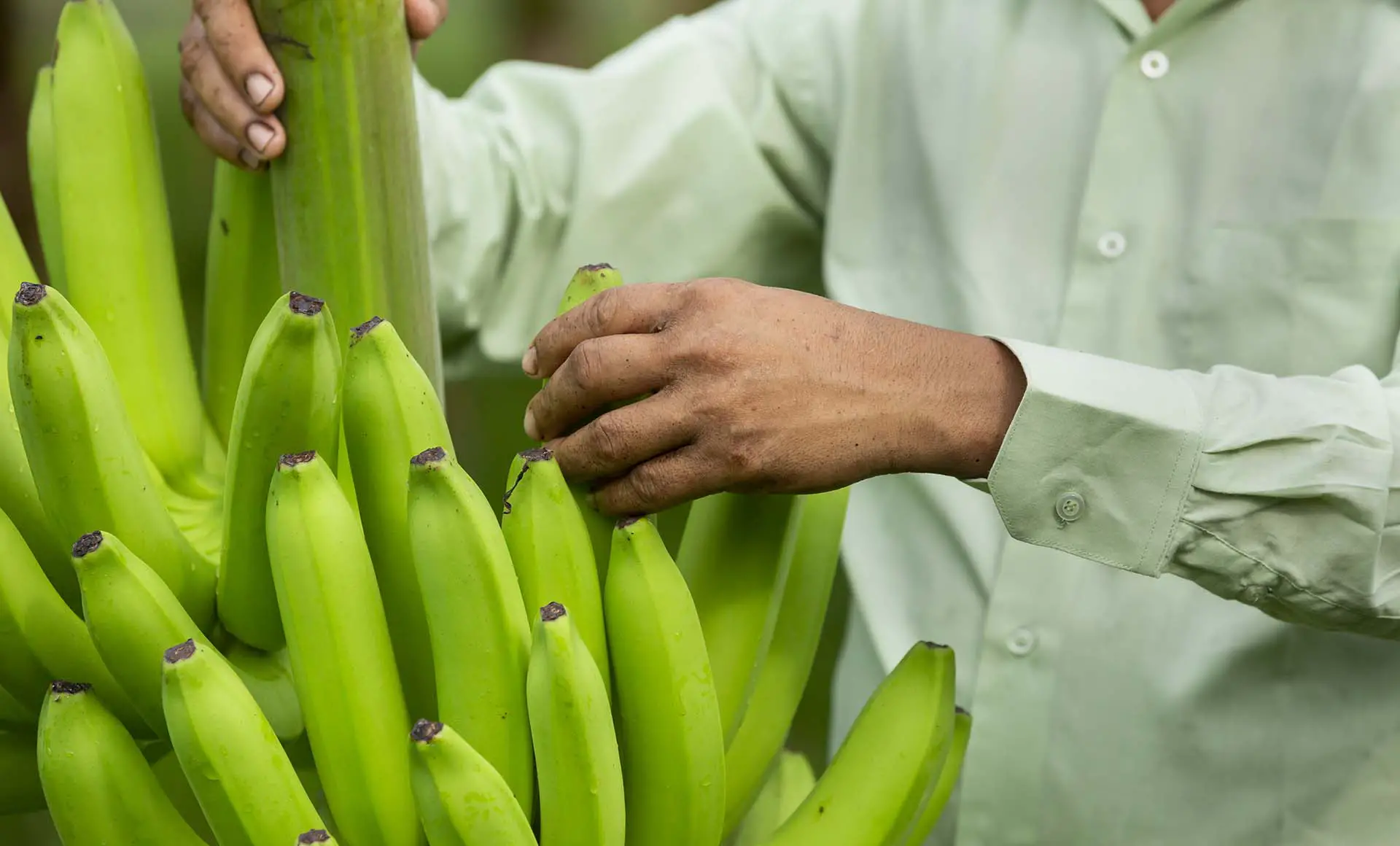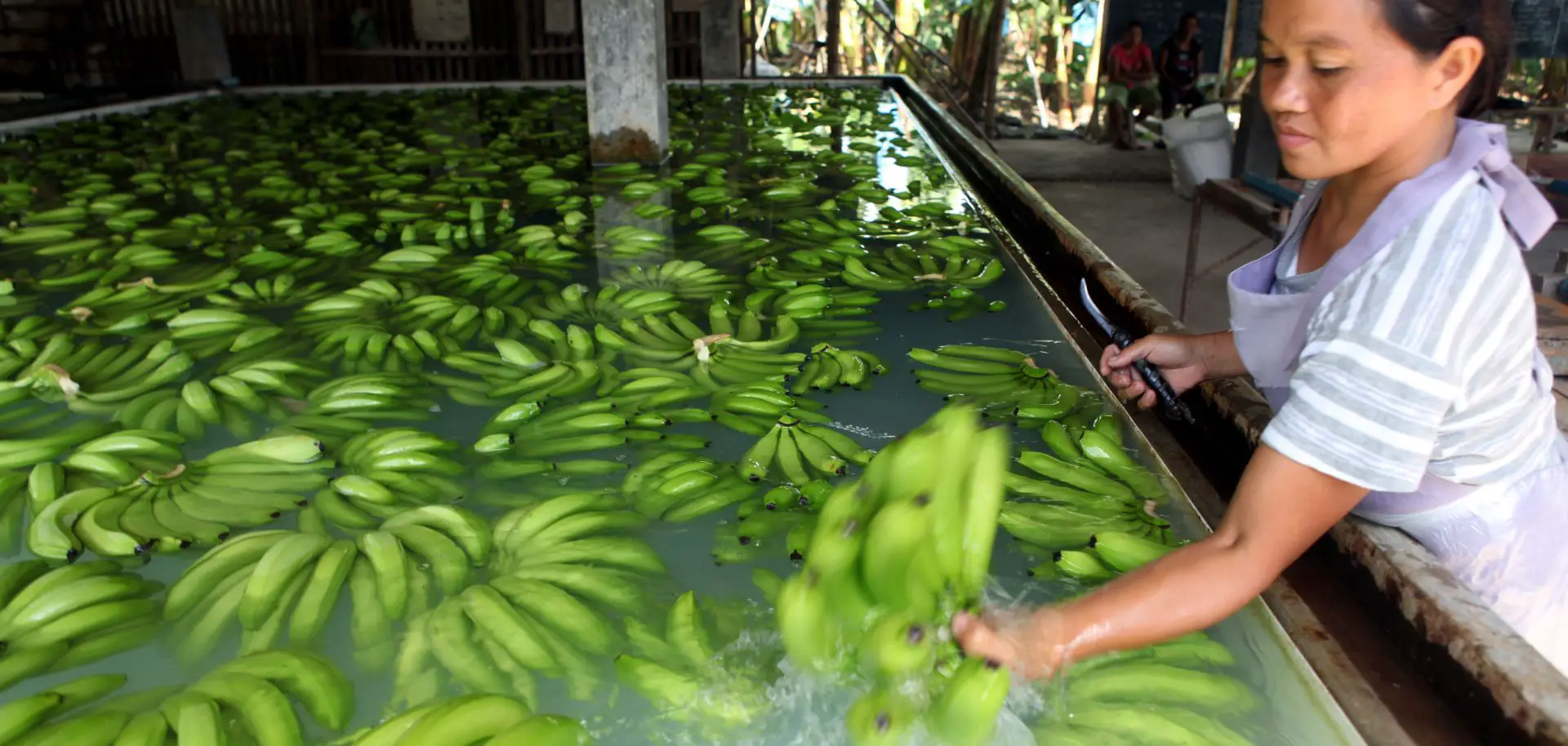
Bananas are not grown in most parts of the United States, but their popularity is undeniable.
The ubiquitous and versatile yellow fruit was purchased at one time by up to 84% of U.S. households according to a 2022 statistical analysis, placing it in the number one spot among fruits and number two among fruits and vegetables behind potatoes (85%).
Bananas are rich in fiber, packed with antioxidants and provide much needed energy, micro and macronutrients including potassium, making them a pre-work and pre-workout snack of choice at any time day or night.
Recently, an inconvenient truth about bananas was revealed, however: gene-edited ‘Frankenbananas’ may be on their way to United States supermarket shelves, and it’s bad news for anyone who appreciates the benefits and virtues of eating natural food created in nature, as opposed to a laboratory situation.
‘GMO Bananas Are Coming’
The latest update on the long-awaited (by Biotech companies) and long-feared (by consumers and natural food advocates) genetically edited bananas was revealed by GMO Free USA.
The novel bananas were created by Tropic, a United Kingdom-based biotech company.
The goal of the GMO bananas is similar to GMO apples, which have been genetically modified to not turn brown like organic and natural apples.
Advocates of keeping the food supply natural state that GMO products are unlabeled so consumers generally do not know if they are consuming something that was created with edited or spliced DNA or not.
They also point out that the vast majority of these genetically engineered food experiments have not been tested for long term safety, and point to correlations between rising rates of health problems since GMOs were first brought to the American market in the 1990s decade.
*****
Shop the Paleo Valley Store – World-Class Organic Food Products and Supplements!
The Electrolytes, Neuroeffect (Organic Mushroom Blend) and ACV Capsules Are My Favorites…
******
GMO Bananas Approved by Philippines; Possible Export to the United States

A Filipino worker processes bananas for export. Source: Worldview.Stratfor.com.
GMO Free USA also stated that the bananas were granted a “non-genetically modified organism exemption” by the Phillippines Bureau of Plant Industry.
The Philippines is the second biggest banana exporter in the world at nearly ten percent, just behind Ecuador at 29 percent. The possibilities suggest unlabeled GMO bananas could arrive to the United States sometime soon, and consumers might not even know about it.
The three most often grown varieties of bananas emanating from the Philippines include Cavendish (53%), Saba (28%), and Lakatan (10%).
These three varieties and country-of-origin labels are worth paying attention to if you happen to be shopping for bananas anytime soon this spring and beyond.
How to Avoid GMO Bananas
“Since genome-editing is deregulated in the United States, our government will require absolutely nothing from the producers of these GMO bananas,” GMO Free USA wrote.
“No safety testing. No GMO labeling. In fact, because of deregulation, Tropic will be able to legally claim that its GMO bananas are non-GMO.
“How screwed up is that? It’s bananas,” GMO Free USA added, encouraging readers to purchase certified organic, biodynamic, or Non-GMO Project Verified bananas.
Gene editing is generally not labeled and is sometimes not considered to be a genetically modified organism according to the GMO industry, but it is not allowed in Non-GMO Project verified foods.
The best way to avoid potential GMO bananas is to buy from a trust non-GMO source. Look for the ‘Non-GMO Project Verified’ butterfly logo or purchase certified USDA organic bananas whenever possible, as gene editing and foreign GMO materials are not allowed in organic and certified Non-GMO Project Verified products.
Thanks for reading! For more information or to donate to support GMO Free USA’s advocacy work, click on this link.
Thanks for installing the Bottom of every post plugin by Corey Salzano. Contact me if you need custom WordPress plugins or website design.




